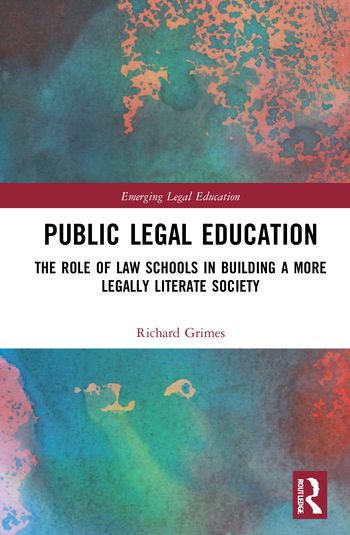
This book makes the case for a more legally literate society and then addresses why and how a law school might contribute to achieving that. As well as examining what public legal education (PLE) is and the forms it can take, the book looks specifically at the ways in which a law school can get involved including whether that is as part of an academic, credit-bearing, course or as extra-curricular activity.
Divided into 5 main chapters the book first examines the nature of PLE and why its provision is so central to the functioning of modern society. Models of PLE are then set out ranging from face to face tuition to the use of hard-copy material including the growing importance of e-based technology. One model of PLE that has proven to be very attractive to law schools – Street Law – is described and analysed in detail. The book then turns to look at the considerations for a law school wishing to incorporate PLE into its offerings be that as part of the formal curriculum or not. The subject of evaluation is then raised – how might we find out if what we do by way of PLE is effective and how it might be improved upon? The final chapter reaches conclusions, some penned by the book’s author and others drawn from key figures in the PLE movement. This book provides a thorough examination of PLE in a law school context and contains a set of templates that can be implemented and/or adapted for use as the situation and jurisdiction dictates.
An accessible and compelling read, this book will be of interest to law students, legal academics, practising lawyers, community activists and all those interested in public legal education.